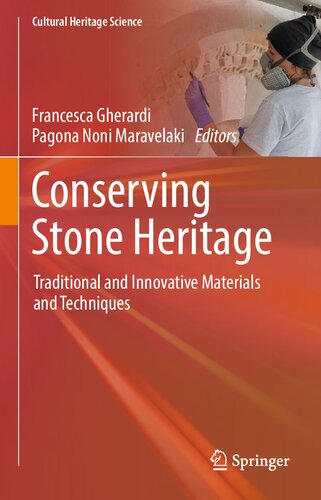

Most ebook files are in PDF format, so you can easily read them using various software such as Foxit Reader or directly on the Google Chrome browser.
Some ebook files are released by publishers in other formats such as .awz, .mobi, .epub, .fb2, etc. You may need to install specific software to read these formats on mobile/PC, such as Calibre.
Please read the tutorial at this link: https://ebookbell.com/faq
We offer FREE conversion to the popular formats you request; however, this may take some time. Therefore, right after payment, please email us, and we will try to provide the service as quickly as possible.
For some exceptional file formats or broken links (if any), please refrain from opening any disputes. Instead, email us first, and we will try to assist within a maximum of 6 hours.
EbookBell Team

4.7
106 reviewsThe design of treatments for the conservation of stone in historical buildings and works of art is a challenging task, as a deep understanding of the working properties and performance of the available products and methods is required to tackle complex decay patterns.
The chapters in this book illustrate the state of the art on traditional and innovative materials and methods for stone conservation, examining current trends and future perspectives. Each of them is focused on describing the consequent phases that complement the spectrum of the conservation intervention: preliminary investigations, condition assessment, and mapping of the deterioration patterns; surface cleaning, with a specific focus on laser technology; consolidation; protection; repair mortars and grouts; and onsite assessment and monitoring of conservation treatments. The performance of the applied conservation interventions is criticized and discussed with an aim of providing the specialists with specific tools for stone conservation.
This book intends to bridge the gap between laboratory studies and conservation interventions, by linking together the diverse scientific areas involved in the preservation of stone heritage. Different case studies are included, highlighting specific conservation challenges and their solutions in order to understand and overcome them. The aim is to guide conservators, conservation scientists and heritage stakeholders in the selection of compatible and sustainable materials and techniques for Conserving Stone Heritage.